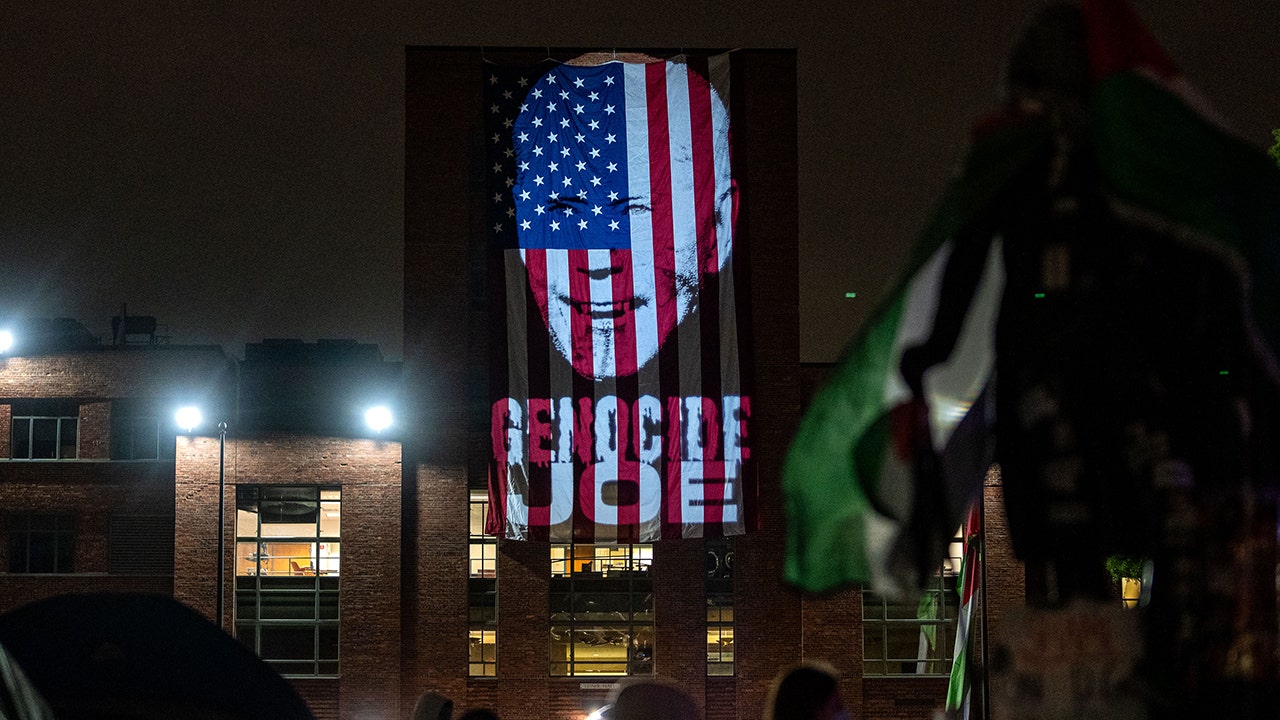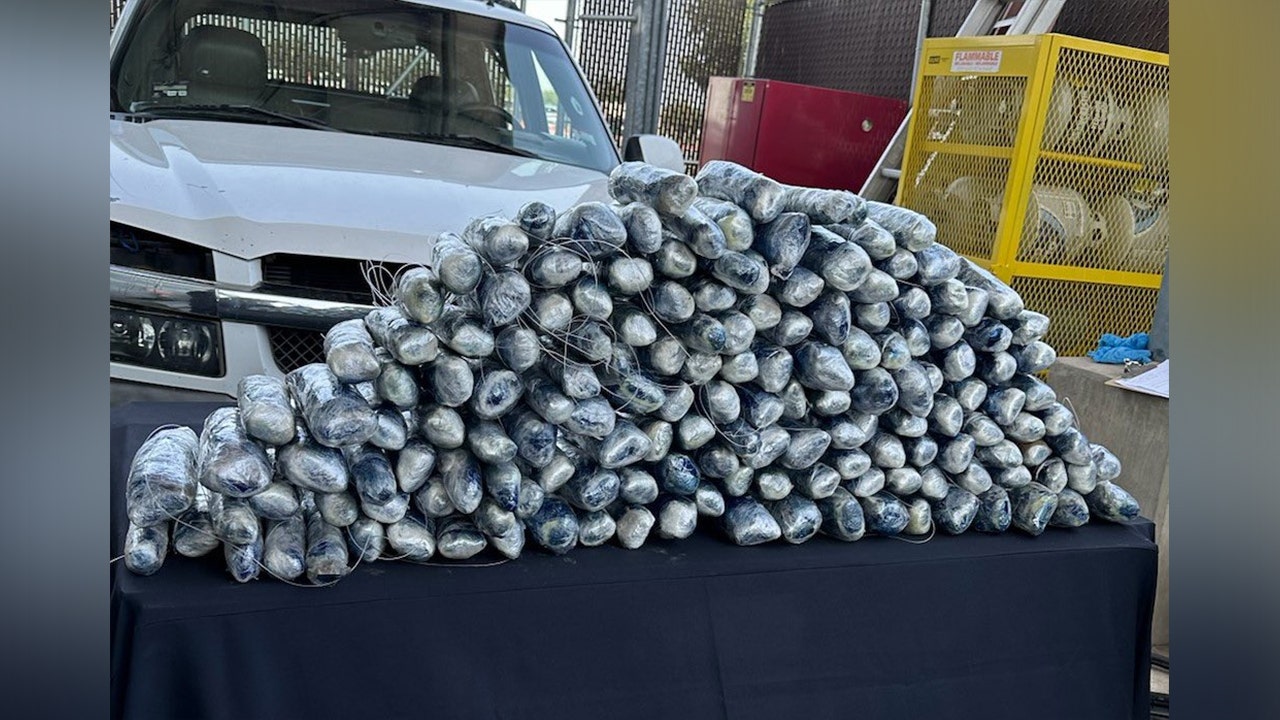Fani T. Willis walked unaccompanied through the front door of a Fulton County courtroom on Thursday afternoon in a bright magenta dress and announced she was ready to testify. She was interrupting her lawyer, who at that very moment was trying to convince a judge that she should not have to testify at all.
“I’m going to go,” Ms. Willis said.
And so she did.
For roughly three hours on Thursday, Ms. Willis, the district attorney in Fulton County, Ga., engaged in the fight of her life from the witness stand to try to salvage the case of her life, the prosecution of former President Donald J. Trump.
In a raw performance, Ms. Willis, 52, presented herself as a woman in full — by turns combative and serene, focused and discursive (at one point she declared her preference for Grey Goose vodka over wine). Her language toggled between casual (a thousand dollars was “a G”) and precise: On numerous occasions, she prefaced her statements with variations on the phrase, “I want to be very clear.”
She upbraided Ashleigh Merchant, one of the defense lawyers questioning her, alleging that Ms. Merchant’s court filings — which accused Ms. Willis of having a disqualifying conflict of interest stemming from a romantic relationship with Nathan J. Wade, the special prosecutor on the case — were full of lies. At one point her voice approached a yell, prompting Scott McAfee, the mild-mannered judge, to call a five-minute recess in an apparent effort to cool things down.
Elsewhere, Ms. Willis chided Mr. Trump’s lawyer, Steven Sadow, when he asked if she had been in contact with Mr. Wade in 2020. Noting that Mr. Wade had cancer at the time, she said, “I am not going to emasculate a Black man.”
She spoke of giving Mr. Wade a trip to Belize for his 50th birthday — earlier in the day, Ms. Merchant had asked Mr. Wade about the couple visiting a tattoo parlor there. She also admitted, in a digression that the lawyers’ questions did not seem to prompt, that she thought Mr. Wade had a sexist view of the world, and said it was the reason they broke up last summer.
“Mr. Wade is used to women that, uh, as he told me one time: The only thing a woman can do for him is make him a sandwich,” she said. “We would have brutal arguments about the fact that I am your equal. I don’t need anything from a man, a man is not a plan, a man is a companion.”
Her testimony unfurled in a courtroom that crackled with dramatic tension, and a peculiar mix of dread and titillation over the fact that a criminal case against a former president had taken a bizarre detour into a melodrama centered around questions about two prosecutors’ love lives — questions that Ms. Willis insists should have never been publicly aired in the first place.
The veteran prosecutor has been put on the defensive in the criminal election interference case she is leading against Mr. Trump and his supporters. Lawyers for Mr. Trump and his co-defendants say she has an untenable conflict of interest because she hired Mr. Wade to manage the case after their relationship began, and then went on fancy vacations with him that he paid for, at least in part.
The accusation that Ms. Willis and Mr. Wade had been romantically involved was first lodged on Jan. 8 in a court filing by Ms. Merchant, a lawyer for Michael Roman, a co-defendant of Mr. Trump who once worked for his campaign. Ms. Willis and Mr. Wade did not directly respond to the allegations for nearly a month, though they eventually did so in their own legal filing.
Ms. Willis’s performance Thursday was a different kind of response — shot through with pride, hurt and blustery verbal jousts. It was the antithesis of the buttoned-up approach taken by Jack Smith, the laconic special counsel leading the two federal criminal cases against Mr. Trump. And it was pitched not only to Judge McAfee, who will determine whether she should be able to keep the case, but also to the Fulton County voters who will decide whether to re-elect her later this year — and who would make up a jury in the case.
She may have also been speaking to a nation that is now entertaining doubts about the validity of her prosecution.
Whether her efforts will succeed is one of a number of questions left unanswered by Thursday’s hearing. Earlier in the day, a former friend and employee of Ms. Willis’s, Robin Bryant Yeartie, testified against her will, via videoconference, saying that Ms. Willis and Mr. Wade had begun their relationship before Ms. Willis hired him in November 2021.
Ms. Yeartie’s testimony contradicted Mr. Wade’s version of events, in which he claimed that the romantic relationship began later, in 2022. But Ms. Yeartie could not offer many details about her conversations with Ms. Willis, and it is unclear whether the judge will find her testimony credible.
Mr. Wade also took the stand, where he was subject to lengthy and sometimes hostile bouts of questioning from Ms. Merchant, as well as by Mr. Sadow and Craig Gillen, a veteran lawyer who represents a defendant who used to head the Georgia Republican Party.
Mr. Wade ran cool where Ms. Willis ran hot, answering questions carefully and with minimal emotion. Ms. Willis acknowledged the difference in her testimony, calling him a “Southern gentleman.”
She tartly added, “Me, not so much.”
Both Ms. Willis and Mr. Wade did their best to push back against the idea, which Ms. Willis deems to be preposterous, that they were prosecuting a former president to gain access to money and expensive vacations.
Mr. Wade said that Ms. Willis repaid him for “roughly” half the cost of the trips. He also said that she paid him back for tickets and other purchases, totaling thousands of dollars, in cash.
The defense lawyers found this difficult to believe, and asked both of them a barrage of questions about the practice. Ms. Willis said that she learned to keep a lot of cash on hand from her father, a retired lawyer and former Black Panther, who taught her that stockpiling cash was a practical way to assert one’s independence.
The hearing resumes on Friday at 9 a.m. Ms. Willis is expected to take the stand for more grilling. The defense lawyers will likely crowd, again, onto one side of the packed courtroom. They are, in aggregate, a sea of boxy wool suits and white male faces (with Ms. Merchant, a white woman, a stark exception).
The contrast with Ms. Willis, in glowing magenta, could not be more glaring.






